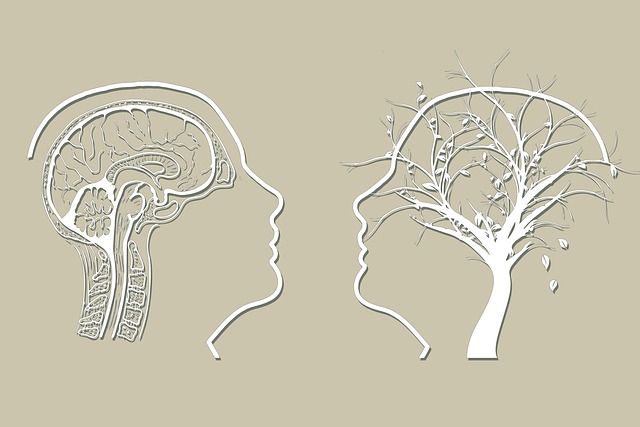Depression can be successfully managed through Colorado Springs Cognitive Processing Therapy (CPT), an evidence-based approach targeting negative thought patterns and emotional responses. By modifying distorted thinking and promoting healthier coping skills, CPT offers long-lasting results in managing depressive symptoms. In addition to professional CBT, practical daily coping strategies, building empathy, self-esteem improvement, and mindfulness techniques are crucial for enhancing overall emotional well-being. Social Skills Training complements these efforts, leading to lasting improvements in mental health.
Depression is a prevalent mental health challenge, but prevention is feasible. This article explores powerful strategies to combat this condition, focusing on Cognitive Processing Therapy (CPT), a proven approach. We delve into understanding depression and its triggers, offering practical daily coping methods for prevention. Additionally, we highlight the significance of professional support, emphasizing Colorado Springs Cognitive Processing Therapy as a game-changer for long-term mental wellness.
- Understanding Depression and the Role of Cognitive Processing Therapy
- Practical Strategies for Daily Coping and Prevention
- Colorado Springs CBT: Accessing Professional Support for Long-Term Wellness
Understanding Depression and the Role of Cognitive Processing Therapy

Depression is a complex mental health disorder that significantly impacts an individual’s emotional well-being and daily functioning. It often stems from a combination of genetic predisposition, environmental factors, and brain chemistry imbalances. Recognizing the signs early on is crucial for effective prevention and treatment. One evidence-based approach gaining traction in Colorado Springs cognitive processing therapy (CPT) has emerged as a powerful tool to combat depression.
CPT focuses on modifying negative thought patterns and improving emotional responses through cognitive restructuring. This therapeutic technique aims to help individuals understand how their thoughts, feelings, and behaviors are interconnected. By identifying and challenging distorted thinking, CPT empowers clients to develop healthier coping skills, enhance mental wellness coaching programs development, and promote overall emotional well-being. The effectiveness of this approach lies in its ability to provide long-lasting results by equipping individuals with valuable coping mechanisms for managing depressive symptoms.
Practical Strategies for Daily Coping and Prevention

In the fight against depression, adopting practical strategies for daily coping and prevention is a proactive approach that can significantly enhance well-being. Cognitive Behavioral Therapy (CBT) techniques, such as those offered in Colorado Springs Cognitive Processing Therapy, prove highly effective. These therapies help individuals challenge negative thought patterns and replace them with more positive, realistic ones, fostering better emotional regulation. Building empathy within oneself and towards others is another powerful strategy. Empathy allows for deeper connections, reduces feelings of isolation, and provides a sense of belonging, all of which are protective factors against depression.
Self-esteem improvement plays a crucial role in mental health resilience. Engaging in activities that promote personal growth and achieving small successes can boost self-worth and confidence. Additionally, anxiety relief techniques like mindfulness meditation and deep breathing exercises can reduce stress levels and prevent depressive episodes. By incorporating these practical strategies into daily routines, individuals can empower themselves to navigate life’s challenges with greater ease and resilience.
Colorado Springs CBT: Accessing Professional Support for Long-Term Wellness

In Colorado Springs, Cognitive Processing Therapy (CBT) emerges as a powerful tool in the fight against depression. This evidence-based approach targets negative thought patterns and maladaptive behaviors, offering individuals a pathway to long-term mental wellness. CBT helps patients understand and challenge distorted thinking, replacing unhelpful cognitions with more realistic and positive ones. By focusing on present experiences and thoughts, rather than past traumas or future anxieties, CBT empowers people to manage their symptoms effectively.
Accessing professional support in the form of Colorado Springs CBT can significantly impact depression prevention strategies. Mental Health Policy Analysis and Advocacy plays a crucial role in ensuring that quality therapy like CBT is accessible to all. Social Skills Training, another valuable component, enhances coping mechanisms by teaching individuals effective communication and interpersonal skills. Together, these interventions foster resilience, promoting not just short-term relief from depressive episodes but also long-lasting improvements in overall mental health.
Depression prevention is a holistic process that involves understanding our minds, adopting practical coping strategies, and seeking professional support when needed. By integrating evidence-based practices like Cognitive Processing Therapy (CBT) in Colorado Springs, individuals can effectively navigate life’s challenges and promote long-term mental wellness. Remember, early intervention and sustained care are key to preventing depressive episodes and fostering a resilient mindset.














